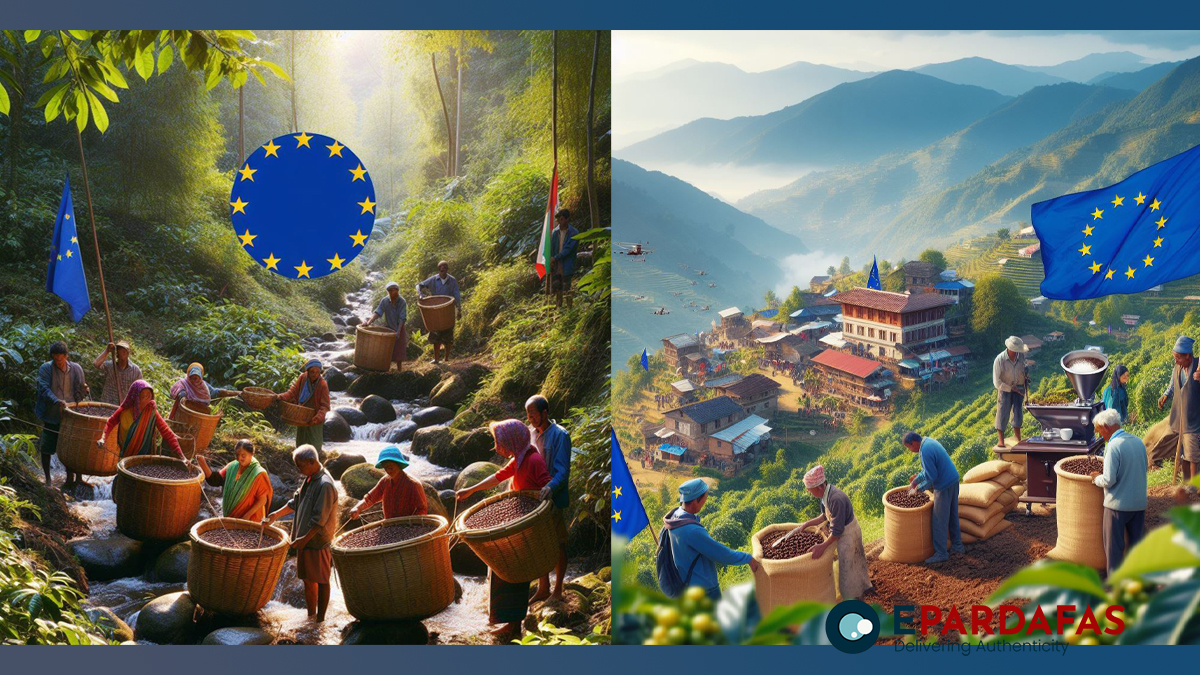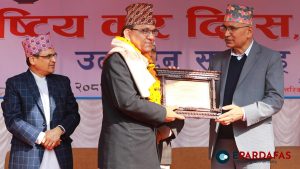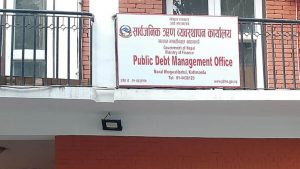
EU Supports Sustainable Coffee Farming Training in Sudurpashchim

In a significant move towards promoting sustainable and scientific methods in commercial coffee farming, local farmers in Shikhar Municipality of Doti district, Sudurpaschim Province, are undergoing training facilitated by the European Union Trade and Investment Programme, in collaboration with the Ministry of Industry, Commerce and Supplies (MoICS), National Tea and Coffee Development Board, and Shikhar Municipality.
The training, launched on Friday, aims to equip potential coffee farmers with modern techniques and practices essential for sustainable coffee cultivation. Practical learning experiences form the core of the training, providing farmers with hands-on insights into coffee nursery development and plantation methods.
Notably, the two-day training program commenced with the planting of 120 Arabica coffee saplings, serving as a tangible demonstration of contemporary approaches to coffee cultivation. The event has drawn the participation of 30 farmers, including 15 women, who are expected to become pioneers in promoting sustainable coffee farming practices in the district.
Bishna Bhat, a participant from Shikhar Municipality, expressed enthusiasm about the opportunities presented by the training, highlighting her aspiration to expand her coffee farming endeavors by applying the knowledge gained. Sunita Rawal, Deputy Mayor of Shikhar Municipality, stressed the importance of collaboration among state institutions and the private sector to ensure sustainable coffee production and market access for locally produced coffee.
Officials including Bhakta Raj Joshi from MoICS, Mim Hamal from the European Union Delegation office, and Dr. Badri Prasad Bastakoti, an expert from the EU-Nepal Trade and Investment Programme, emphasized the need for modern and sustainable farming techniques to enhance coffee supply capacity and meet growing demand.
Nepal’s potential for coffee farming is substantial, with an estimated 1.2 million hectares suitable for cultivation. Despite challenges, the country has made strides in coffee production, with plantations covering over 3655 hectares and producing approximately 400 tons annually, according to the National Tea and Coffee Development Board.
The collaborative efforts between the EU and local stakeholders underscore a promising trajectory for sustainable coffee farming in Sudurpashchim, with the training program expected to play a pivotal role in empowering farmers and promoting environmentally-friendly agricultural practices.
- Indian Army Chief General Upendra Dwivedi Meets PM Oli, Highlights Deepening Bilateral Defense Ties
- Bimalendra Nidhi: BRI Agreement Requires National-Level Discussion Before Signing
- PM Oli Urges Investment Amid Economic Reforms, Promises Stability and Prosperity
- Nepali Congress Rejects Loans Under China’s BRI, Pushes for Grant Assistance Ahead of PM Oli’s Visit to Beijing












Comments